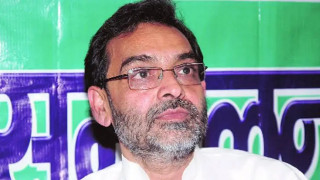
Prime Minister Narendra Modi (ANI)
The Modi government has encountered significant backlash over its agricultural policies, which have been criticized by farmers as being detrimental to their interests. Since 2020, widespread protests have erupted, particularly in Punjab and Haryana, against these contentious laws.
However, the Indian government asserts that the new agricultural laws are designed to modernize the farming sector by offering greater flexibility and improved market access. Despite these claims, there is considerable skepticism from opposition parties and farmer unions who argue that the reforms disproportionately favor large corporations over small farmers.
Critics express concern that the end of the Minimum Support Price (MSP) system could leave farmers vulnerable to exploitation by major companies. This ongoing disagreement has deepened the rift between the government and the farming community.
In response to these concerns, the government has introduced several initiatives aimed at supporting farmers. One notable program is a Rs 13,966 crore scheme intended to enhance agricultural productivity and sustainability. This initiative includes investments in technology and data-driven farming practices.
Another significant project is the Agriculture Infrastructure Fund, with an allocation of Rs 3,979 crore. This fund focuses on upgrading storage facilities and minimizing post-harvest losses, forming part of a larger strategy to advance India’s agricultural sector.
The government is also promoting technological advancements with digital platforms like AgriStack. These platforms utilize data and artificial intelligence to assist farmers in making informed decisions regarding crop management and market access.
Additionally, the PM-KISAN scheme provides direct financial support to farmers, with a budget of Rs 1,115 crore. This initiative aims to ensure the long-term viability of small farmers by offering a stable income source.
The government’s commitment extends to education and skill development with a Rs 2,291 crore initiative designed to enhance agricultural education and management practices. This effort is intended to help farmers adapt to evolving agricultural needs.
Sustainability is also a key focus, with schemes like the Rs 860 crore initiative promoting the development of high-yield, climate-resilient crop varieties. This project aims to boost both productivity and sustainability in Indian agriculture.
Despite persistent protests and criticism, the government maintains that its agricultural reforms are ultimately beneficial for farmers, providing them with improved opportunities and resources. The debate over the effectiveness and fairness of these policies continues, reflecting strong divergent views on the future of India’s agriculture sector.













Copyright © 2025 Top Indian News
